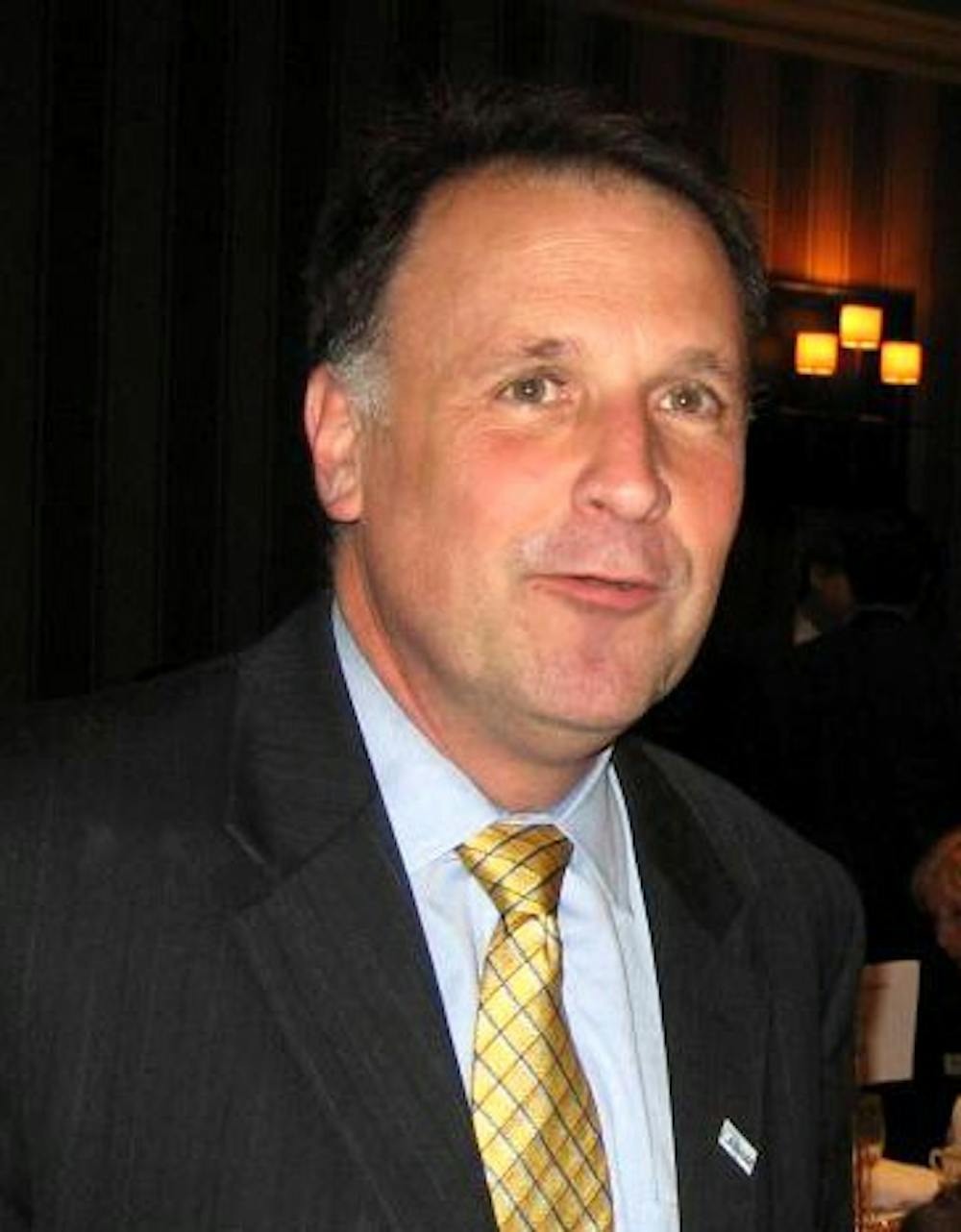As a part of National Suicide Prevention Week, Virginia State Sen. Creigh Deeds (D-Bath) gave a lecture Thursday evening concerning mental health awareness and legislation.
The event, which was sponsored by the University chapter of To Write Love on Her Arms, had approximately 30 people in attendance.
Deeds spoke for about 15 minutes on a topic he titled “Things I’ve Learned in Dealing with People.”
His first piece of advice encouraged attendees to “own” their decisions, and he reminded them that their choices are no one’s fault but their own.
The second thing Deeds said he has learned is to not worry.
“Worry does you no good,” Deeds said. “If you can control it, control it. If you can’t control it, let it go.”
Finally, Deeds stressed the importance of looking out for others, especially when faced with a “stressful environment” such as within the University.
“You are your brother’s keeper,” Deeds said. “Understand this — we all come in different sizes and shapes. Appreciate everybody for what they are. Love yourself, but remember to look out for the other guy, too.”
Third-year College student and TWLOHA member Megan Mason Dister said she especially appreciated Deeds’s final talking point.
“I also appreciated his message that it’s important to think about your friends and reach out to them if they are struggling because we have a duty as people to look out for one another,” Dister said.
After Deeds shared his advice, he allowed members of the audience to ask him questions about mental health policy at the state and federal level, as well as about his personal experiences with mental illness.
Deeds mentioned he was “a little disappointed in the federal bills” and noted that although the bills have good intentions, there is not enough money for the plans to be put into action.
“This is not a problem we can just throw money at,” Deeds said. “It’s going to require money, but we have to be smart about the way we spend it.”
He also discussed how some mental health advocacy groups in Virginia, such as community service boards and consumer community groups, have been critical of new proposals that have arisen in the General Assembly.
For example, consumer community groups “overprotect” the privacy of their patients by restricting the amount of treatment information caretakers are authorized to. While Deeds is focusing on changing this practice, treatment centers have been resistant to changing their patient’s privacy policies.
“The interest I primarily have is for adults who have problems, if their family members are their caregivers, then to allow those family members to have access to their diagnosis and plan for treatment,” Deeds said.
Deeds cited his own personal experiences in which he paid for his son’s mental health medications and doctor’s visits as well as a place for him to stay, but was unable to be informed about his son’s treatment plan.
Deeds’ experience with his son was one of the reasons TWLOHA asked him to speak.
“His personal experience with his son's mental illness gives him an emotional connection and moving story that helps people really understand the gravity of the problem,” Dister said.
In November 2013, Deeds was stabbed in the head and chest by his son, Gus Deeds, who was 24 at the time. After stabbing his father, Gus — who struggled with bipolar disorder — shot and killed himself.
Less than a day before the incident, Gus was released from an emergency custody order because no psychiatric beds were available.
Deeds still tells others that his son was “everything I wanted to be.”
“The end wasn’t what he was,” Deeds said. “I want people to remember him for what he was and not the way his life ended.”
When asked how citizens can help in the fight to implement mental health legislation, Deeds encouraged audience members to contact both their state and federal legislators.
“At the federal level, people need to contact their senators and congressmen and tell them that they want real reform,” Deeds said. “At the legislative level, I would say just contact your legislators and tell them this is something you care about.”







